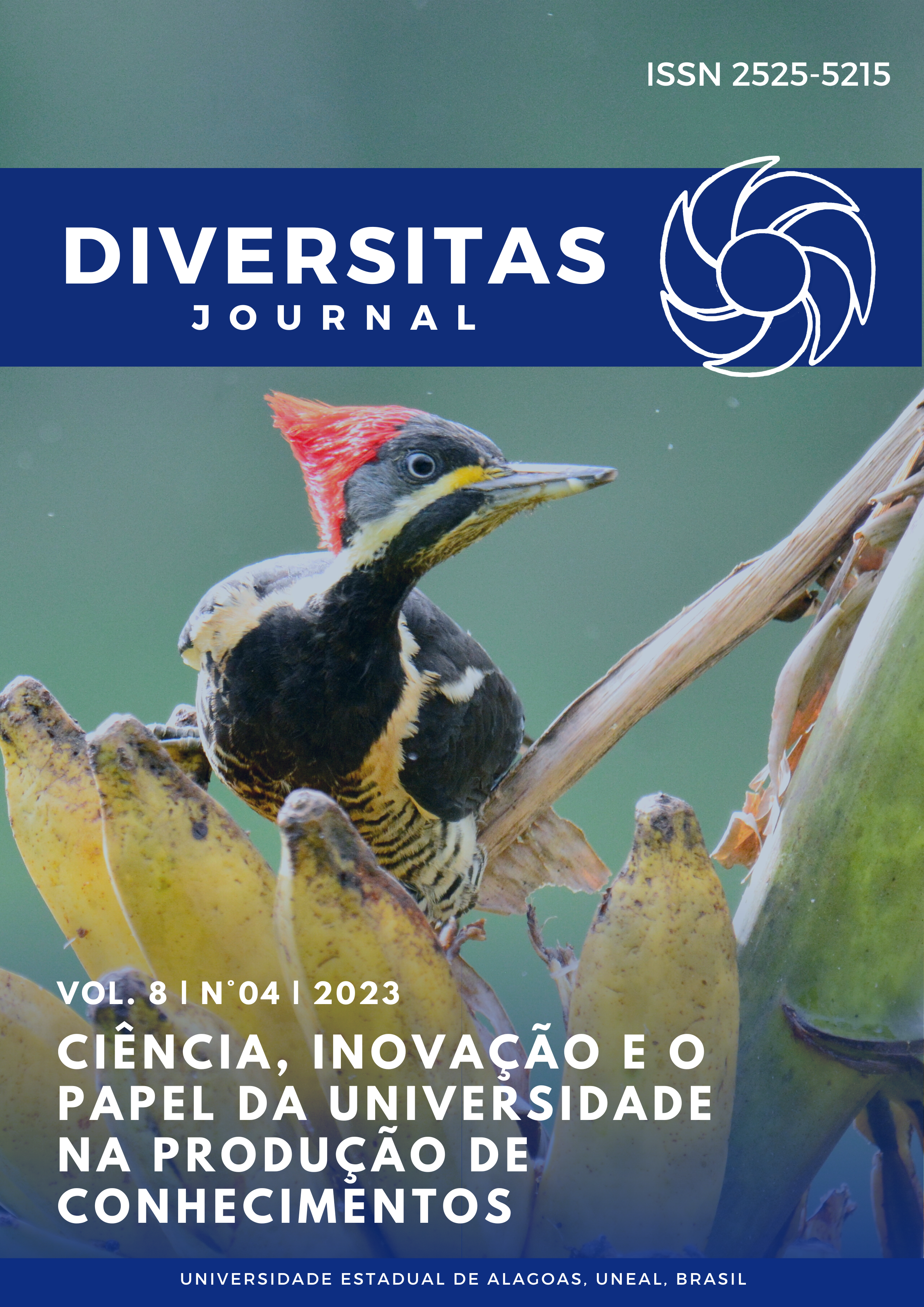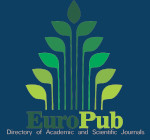Pedagogia ESL nas faculdades filipinas
questões e reformas através da perspectiva de ensino do século 21
DOI:
https://doi.org/10.48017/dj.v8i4.2761Palavras-chave:
Estudo de linguagem, pedagogia do ensino de inglês, Educação no seculo 21, ESLResumo
Este estudo explora o ensino e a aprendizagem de Inglês como Segunda Língua (ESL) em faculdades e universidades filipinas, concentrando-se nos problemas enfrentados por professores e estudantes filipinos. Os investigadores examinam como os métodos e pedagogias linguísticas do século XXI podem melhorar a competência dos alunos na segunda língua, citando diferentes abordagens que os professores podem aplicar na sala de aula. O desenho de pesquisa qualitativa na Abordagem Fenomenológica Interpretativa (IPA) visa identificar problemas enfrentados pelos professores universitários e fornecer uma estrutura para sugerir reforma pedagógica para melhorar o ensino de ESL nas Filipinas, particularmente no ensino superior. O estudo centra-se na especificidade e coerência das abordagens do ESL e na sua ligação com os padrões de aprendizagem do século XXI. As conclusões sugerem que o currículo existente precisa de aumentar a sua distinção, coerência interna e integração dos principais conceitos de aprendizagem do século XXI. O grau de aplicação dos métodos e métodos de ensino é crucial para o desenvolvimento das competências de uma segunda língua dos alunos. O programa de intervenção proposto visa desenvolver alunos de línguas competentes. A revisão da literatura ajudará a desenvolver alunos de línguas competentes. O estudo conclui com possíveis problemas de implementação, recomendações para projeto e implementação futuros e implicações para pesquisas futuras.
Métricas
Referências
Akbari, Z. (2015). Current Challenges in Teaching/Learning English for EFL Learners: The Case of Junior High School and High School. Procedia - Social and Behavioral Sciences, 199, pp.394–401. https://doi.org/10.1016/j.sbspro.2015.07.524
Alharbi, S. H. (2021). The Struggling English Language Learners: Case Studies of English Language Learning Difficulties in EFL Context. English Language Teaching, 14(11), pp. 108. https://doi.org/10.5539/elt.v14n11p108
Arbon, A. M. M., & Pariña, J. C. M. (2018). A Study of Language Learning Strategies of College Female Students in the Philippines. DLSU Research Congress, 6(6). https://www.dlsu.edu.ph/wp-content/uploads/pdf/conferences/research-congress-proceedings/2018/lli-07.pdf
Barrot, J. S. (2019). English Curriculum Reform in the Philippines: Issues and Challenges from a 21st Century Learning Perspective. Journal of Language, Identity & Education, 18(3), pp. 145–160. https://doi.org/10.1080/15348458.2018.1528547
Bernardo, A., & Madrunio, M. (2015). A Framework for Designing a Philippine-English-based Pedagogic Model for Teaching English Grammar. Journal of English Language Studies, 3, pp. 42–71. https://doaj.org/article/abbac0d430754e03883b50a4dcf81431
Bernardo, A. S. (2014). Changing and Changed Stance Toward Norm Selection in Philippine Universities: Its Pedagogical Implications. Journal on English Language Teaching, 4(3), pp. 26–37. https://eric.ed.gov/?id=EJ1068433
Burgos, M. V., & Garcia, R. B. (2020). Language Teaching Method, Pedagogies, Attitudes and Competencies toward English as a Second Language Among Senior High Schools: Basis for Intervention Program. Asia Pacific Journal of Academic Research in Social Sciences, 5(1), pp. 6–14. https://research.lpubatangas.edu.ph/wp-content/uploads/2020/06/APJARSS-2020.002.pdf
Christiansen, B. (2020). Best Practices for Teaching ESL in Higher Education. In Using Literature to Teach English as a Second Language. pp. 52–64. IGI Global. https://doi.org/10.4018/978-1-7998-4670- 3.ch003
Domingo, P. (2020). Triumphs and struggles in teaching the English language. International Journal of Studies in Education and Science (IJSES), 1(1), pp. 59–79. https://doi.org/10.46328/ijses.9
Doplon, F. P. G. (2018). The Supremacy of English in Philippine Language Education Policy. In Reconceptualizing English Education in a Multilingual Society (pp. 29–46). https://doi.org/10.1007/978- 981-10-7528-5_3
Fatiloro, O. F. (2015). Tackling the Challenges of Teaching English Language as Second Language (ESL) In Nigeria. IOSR Journal of Research & Method in Education, 5(2), 26–30. https://doi.org/10.9790/7388-05212630
Gonzales, W. D. W., & Torres, P. L. O. (2016). “Filipino ESL Learners’’ Attitudes toward Cooperative Learning and Their Relationship to Reading Comprehension.” TESOL International Journal, 11(2), pp. 70–90. https://files.eric.ed.gov/fulltext/ED571834.pdf
Harrison, J., & Shi, H. (2016). English Language Learners in Higher Education: An Exploratory Conversation. Journal of International Students, 6(2), pp. 415–430. https://doi.org/10.32674/jis.v6i2.364
Haug, B. S., & Mork, S. M. (2021). Taking 21st century skills from vision to classroom: What teachers highlight as supportive professional development in the light of new demands from educational reforms. Teaching and Teacher Education, 100, 103286. https://doi.org/10.1016/j.tate.2021.103286
Huda, F. (2016). An Investigation of English Teaching Strategies in Enhancing Students’ Vocabulary Implemented by a Pre-service English Teacher. UPI Journal of English and Education, 4(2), pp. 35–43. https://media.neliti.com/media/publications/191992-EN-an-investigation-of-english-teaching-str.pdf
Karami, S., & Zamanian, M. (2016). A review of English teaching practices in the Philippines. Journal of Language Sciences & Linguistics, 4(1), pp. 23–29. https://www.researchgate.net/publication/327020285_A_Review_of_English_Teaching_Practices_in_the_Philippines
Khan, T. J., & Khan, N. (2016). Obstacles in Learning English as a Second Language among Intermediate Students of Districts Mianwali and Bhakkar, Pakistan. Open Journal of Social Sciences, 04(02), 154–162. https://doi.org/10.4236/jss.2016.42021
Laal, M., Laal, M., & Kermanshahi, Z. K. (2012). 21st Century Learning; Learning in Collaboration. Procedia - Social and Behavioral Sciences, 47, 1696–1701. https://doi.org/10.1016/j.sbspro.2012.06.885
Madrunio, M. R., Martin, I. P., & Plata, S. M. (2016). English Language Education in the Philippines: Policies, Problems, and Prospects. In English Language Education Policy in Asia (pp. 245–264). https://doi.org/10.1007/978-3-319-22464-0_11
Maestre, J.-L. T., & Gindidis, M. (2016). Teachers‘ Beliefs, Practices and Challenges in Using Communicative Language Teaching (CLT) in an ESL Context in the Philippines. The Asian Conference on Language Learning 2016 Official Conference Proceedings.
Mallillin, L. L. D. (2021). ELT in Both Private and Public Higher Education Institutions (HEIs): An Approach to New Normal Pedagogy of Teaching. European Journal of English Language Studies, 1(1), 1–14. https://doi.org/10.12973/ejels.1.1.1
Mohammed, M. H. (2018). Challenges of Learning English as a Foreign Language (Efl) by Non-Native Learners. International Journal of Social Science and Economic Research, 3(4), pp. 1381– 1400. http://www.ijsser.org/2018files/ijsser_03__97.pdf
Mynbayeva, A., Sadvakassova, Z., & Akshalova, B. (2018). Pedagogy of the Twenty-First Century: Innovative Teaching Methods. In New Pedagogical Challenges in the 21st Century - Contributions of Research in Education. InTech. https://doi.org/10.5772/intechopen.72341
Nanquil, L. M. (2021). Changes and Challenges in the Teaching of Grammar in the Age of Disruption. Journal of Learning and Development Studies, 1(1), pp. 01–06. https://doi.org/10.32996/jlds.2021.1.1.1
Oktay, A. (2015). Foreign Language Teaching: A Problem in Turkish Education. Procedia - Social and Behavioral Sciences, 174, pp. 584–593. https://doi.org/10.1016/j.sbspro.2015.01.587
Pheeraphan, N. (2013). Enhancement of the 21st Century Skills for Thai Higher Education by Integration of ICT in Classroom. Procedia - Social and Behavioral Sciences, 103, pp. 365–373. https://doi.org/10.1016/j.sbspro.2013.10.346
Samifanni, F., & Gumanit, R. L. (2020). Perception on the Effectiveness of Method in Teaching English as a Second Language to 21st Century Learners. International Journal of Social Science and Economics Invention, 6(10), pp. 362–368. https://doi.org/10.23958/ijssei/vol06-i10/243
Separa, L. A. C., Generales, L. J., & Medina, R. J. S. (2020). Situational Speaking Difficulties of English as second Language Learners in the Philippines. Journal of Southeast Asian Studies, 25(1), pp. 144–167. https://doi.org/10.22452/jati.vol25no1.8
Songbatumis, A. M. (2017). Challenges in Teaching English Faced by English Teachers at MTsN Taliwang, Indonesia. Journal of Foreign Languange Teaching and Learning, 2(2), pp. 54–67. https://doi.org/10.18196/ftl.2223
Sumande, C. T., Castolo, C. L., & Comendador, B. E. v. (2016). The ict Level of Confidence of Course Specialists in Distance Education: The Polytechnic University of the Philippines experience. Turkish Online Journal of Distance Education, 17(4). https://doi.org/10.17718/tojde.25498
Talidong, K. J. B., & Liu, Q. (2020). Teaching Methods in English Language Instruction: Case of Selected English Language Teachers in General Santos City, Philippines. Journal of Literature, Languages and Linguistics, 66, pp. 45–52. https://doi.org/10.7176/JLLL/66-07
Tarrayo, V. N., Hernandez, P. J. S., & Claustro, J. Ma. A. S. (2019). Teachers and Research Practices: Perspectives from English Language Educators In A Philippine University. Australian Journal of Teacher Education, 45(12), pp. 73–90. https://doi.org/10.14221/ajte.202v45n12.5
Tomaro, Q. P. v. (2018). ICT integration in the educational system of Philippines. Journal of Governance and Public Policy, 5(3). https://doi.org/10.18196/jgpp.5399
Tosun, C. (2012). Is it the reason for failure in teaching and learning foreign languages in our country methodology?. In What should be the trend in foreign language education in Turkey. (Vols. 12–13). Yabancı Dil Egitimi Calıstayı Bildirileri.
Tudy, I. G., & Villasor, H. D. B. (2017). English language learning, strategy use and academic performance of college students. Slongan, 3(1), pp. 30–47. https://rpo.cjc.edu.ph/index.php/slongan/article/view/12
Turmudi, D., & Hajan, B. H. (2020). Education System and English Language Teaching in the Philippines: Implications for Indonesian efl Learning. Premise: Journal of English Education, 9(1), pp. 78–93. https://doi.org/10.24127/pj.v9i1.2791
Downloads
Publicado
Como Citar
Edição
Seção
Licença
Copyright (c) 2023 Diam Maru Etcoy, Aeryel Kassandra Joverto, Ma. Julia Andrea Paligutan

Este trabalho está licenciado sob uma licença Creative Commons Attribution 4.0 International License.
O periodico Diversitas Journal expressa que os artigos são de unica responsabilidade dos Autores, conhecedores da legislação Brasileira e internacional. Os artigos são revisados pelos pares e devem ter o cuidado de avisar da possível incidencia de plagiarismo. Contudo o plagio é uma ação incontestavel dos autores. A Diversitas Journal não publicará artigos com indicios de Plagiarismos. Artigos com plagios serão tratados em conformidade com os procedimentos de plagiarismo COPE.
A violação dos direitos autorais constitui crime, previsto no artigo 184, do Código Penal Brasileiro:
“Art. 184 Violar direitos de autor e os que lhe são conexos: Pena – detenção, de 3 (três) meses a 1 (um) ano, ou multa. § 1o Se a violação consistir em reprodução total ou parcial, com intuito de lucro direto ou indireto, por qualquer meio ou processo, de obra intelectual, interpretação, execução ou fonograma, sem autorização expressa do autor, do artista intérprete ou executante, do produtor, conforme o caso, ou de quem os represente: Pena – reclusão, de 2 (dois) a 4 (quatro) anos, e multa.”















.png)




